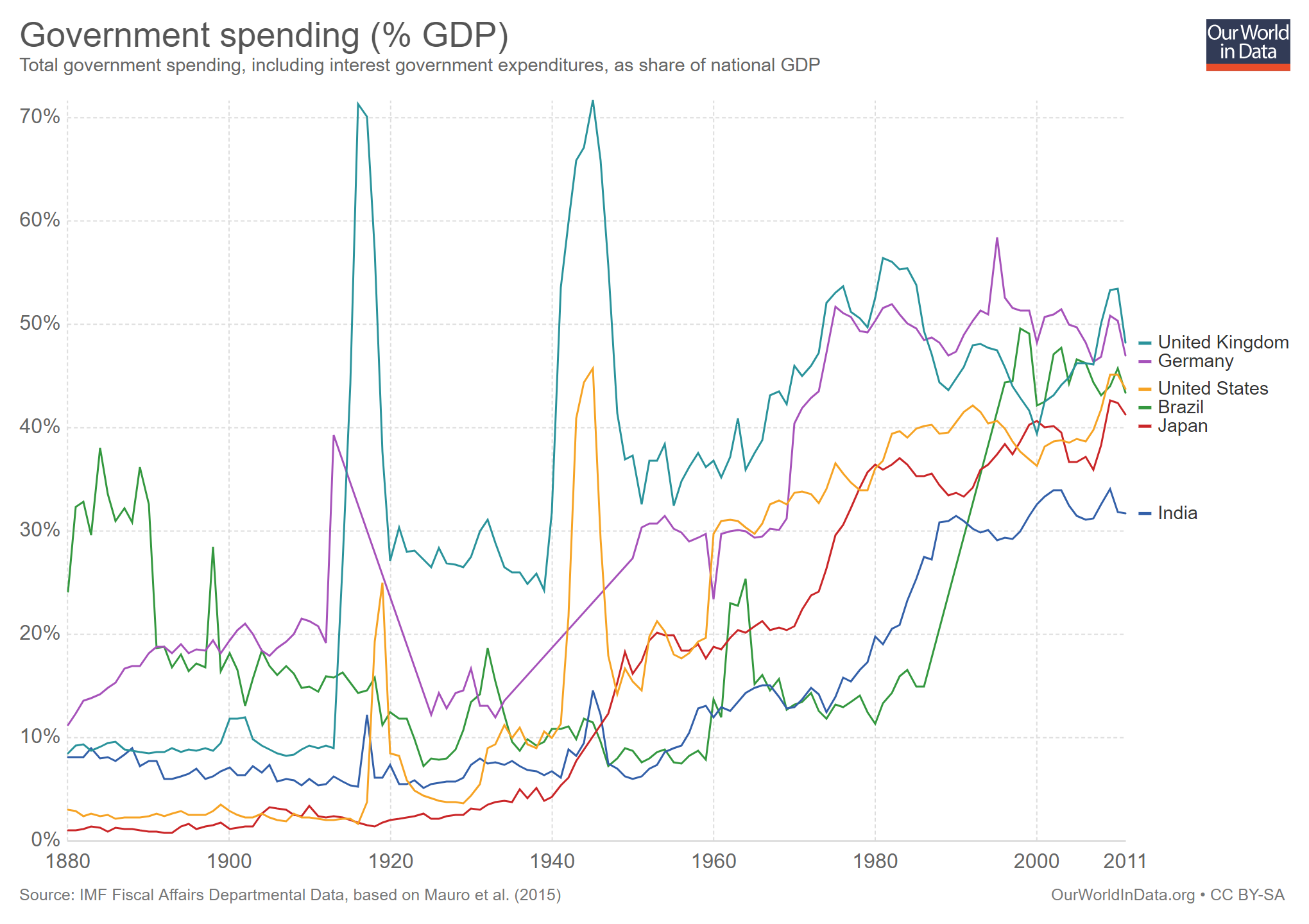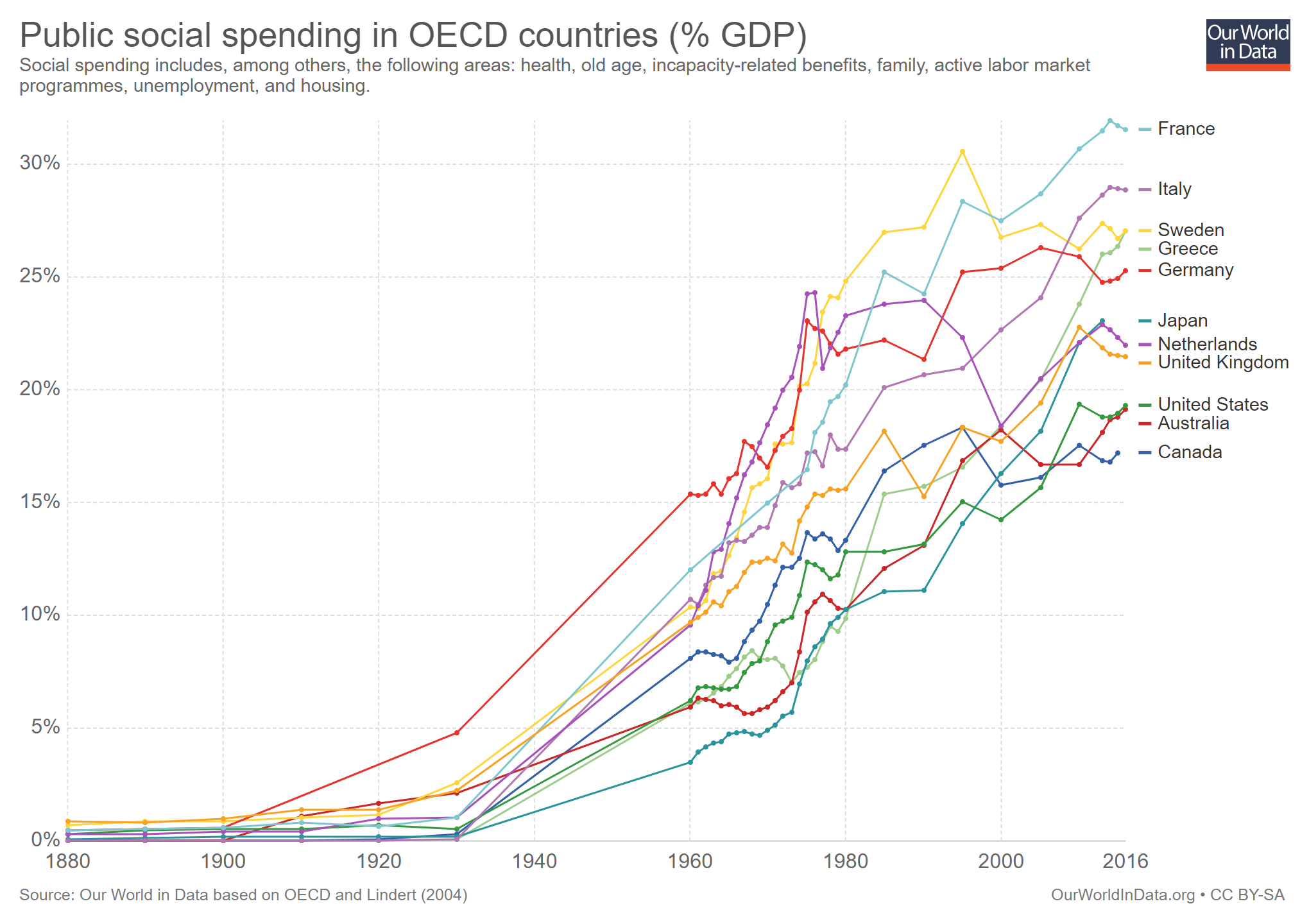Historical poverty reductions: more than a story about ‘free-market capitalism’
The share of people living in extreme poverty around the world has fallen continuously over the last two centuries.
In our experience from the last couple of months, when people are presented with this empirical fact, many often say that globalization in the form of ‘free-market capitalism’ is the main force to be thanked for such remarkable historical achievement. Here we want to argue that while free markets are undoubtedly important, this focus on ‘free-market capitalism’ alone is misguided.
Yes, over the last two centuries free markets and globalization have had a positive effect on aggregate economic growth, contributing to better living conditions and the reduction of extreme poverty across the world. Yet this is far from the only important socioeconomic change and moreover, the last two centuries have not been all about ‘free-market capitalism’. Governments around the world have dramatically increased their potential to collect revenues in order to redistribute resources through social transfers and raise the living standards of those that are worst off.
Larger governments
The following visualization shows the evolution of government expenditure as a share of national income for a selection of countries over the last century. The data comes from Mauro et al. (2015) and you can use the option ‘Add country’ to include other series.1
The reach of governments has grown substantially over the last century: the share of total output that governments control is much larger today than a century ago.
In absolute terms, the growth of governments is even more striking. GDP has grown substantially in the last century, so most governments around the world control more resources today than ever before.
More social protection
The visualization above shows that government spending in early-industrialized countries grew substantially in the 20th century. The following visualization shows that this was the result of growth specifically in social spending.
The data presented in this visualization comes from several different sources. In the ‘sources’ tab you can read more about how we combined them to produce a unified series.
The main message from this chart is that the explosive process of globalization that we have experienced in the last couple of centuries took place at the same time that governments increased their potential for taxing and redirecting resources through public policies, particularly social transfers.
Why should we care?
It is true that the historical reduction of extreme poverty around the world happened as markets liberalized and capitalism flourished. But it is also true that this reduction of poverty and improvement of living conditions happened at the time that public spending and redistribution to the worst off reached by far the highest levels ever.
The point we want to emphasize is that the world economy has changed in many ways in the last two centuries; and while globalization has been a key factor contributing to raising living standards across the world, its positive effects have been modulated by public policies, particularly social transfers.
This matters because policies aimed at liberalizing trade, and policies aimed at providing social safety nets, are often advocated by different groups. And it is common for these groups to argue that they are in conflict. Both economic theory and the empirical evidence from the fight against extreme poverty suggest that this is a mistake: globalization and social policy should be treated as complements rather than substitutes.
This article first appeared in Our World In Data


